
Resilience Steps
Find support and resources tailored to your project needs. Select your Planning Phase, Location, and/or Topic of interest to access a filtered selection of our curated resources and tools.

Find support and resources tailored to your project needs. Select your Planning Phase, Location, and/or Topic of interest to access a filtered selection of our curated resources and tools.

Learn about the environmental threats and climate risks in your community

Identify strategies to help mitigate risks and develop ways to adapt to a changing climate

Find funding and guidance to help put your plans into action

Monitor, maintain, and adaptively-manage your project to sustain success
Select one or more of the filters below to find relevant tools and resources for your needs



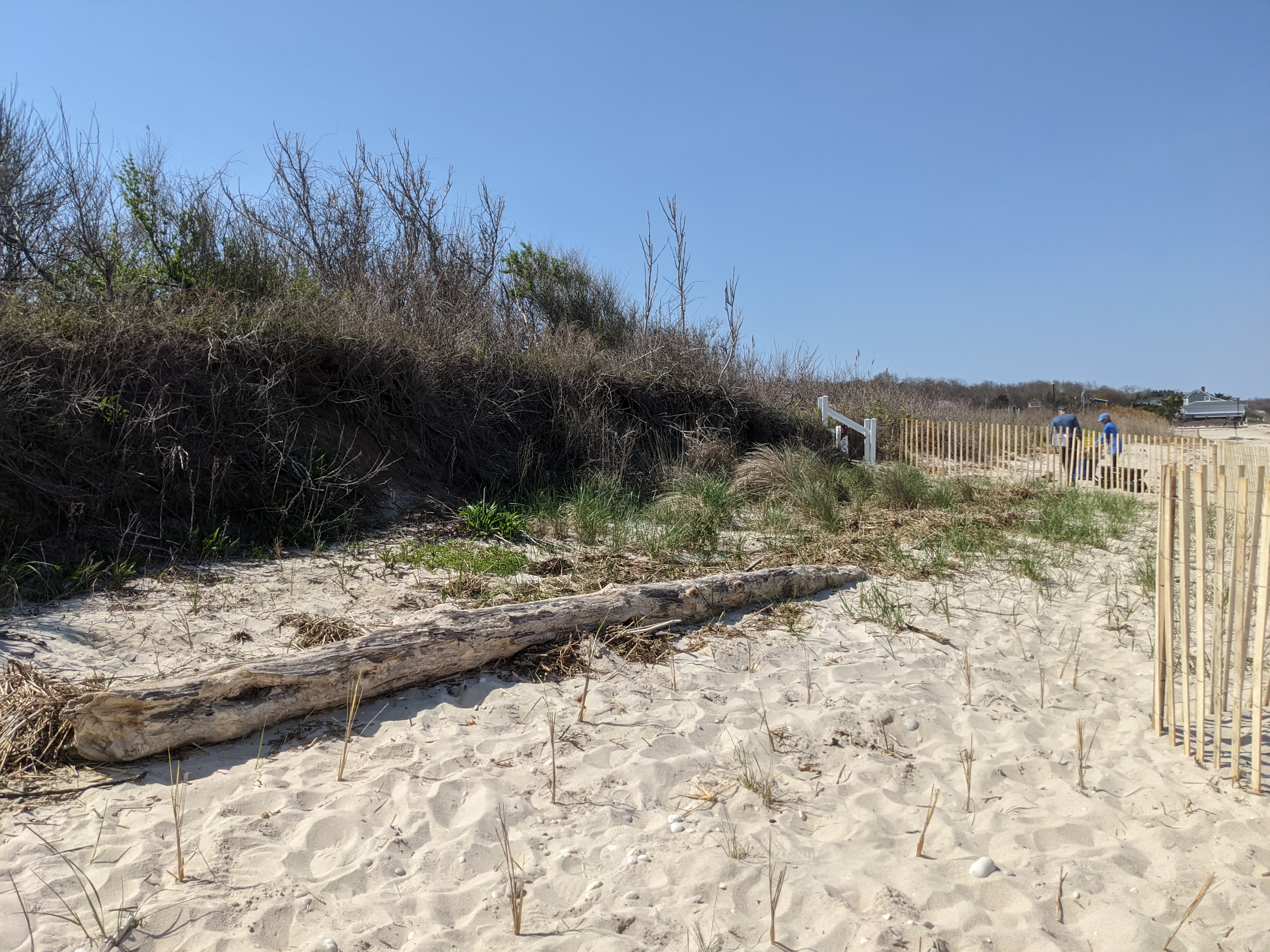
Learn how to identify, prioritize, and implement high-impact projects
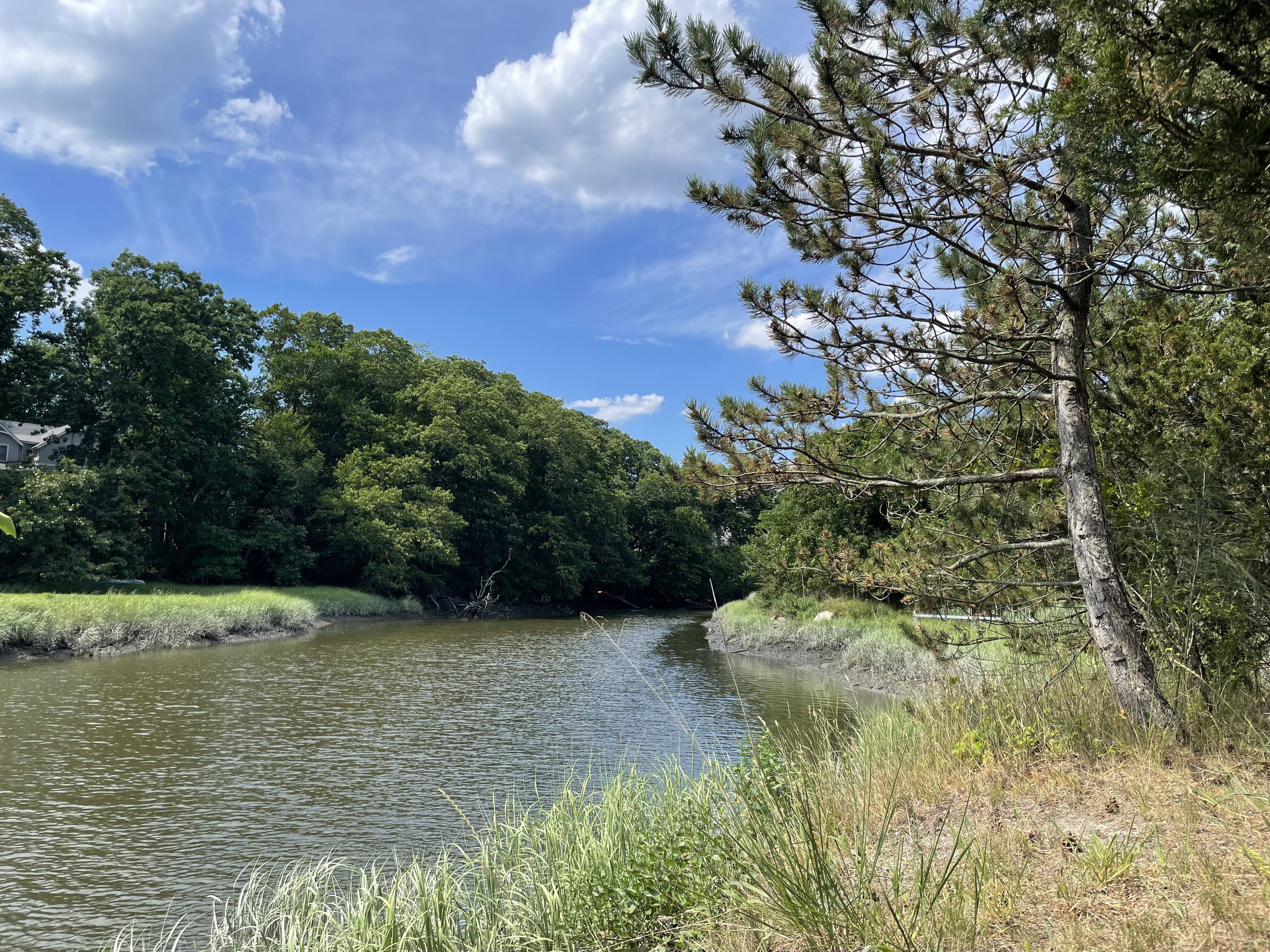
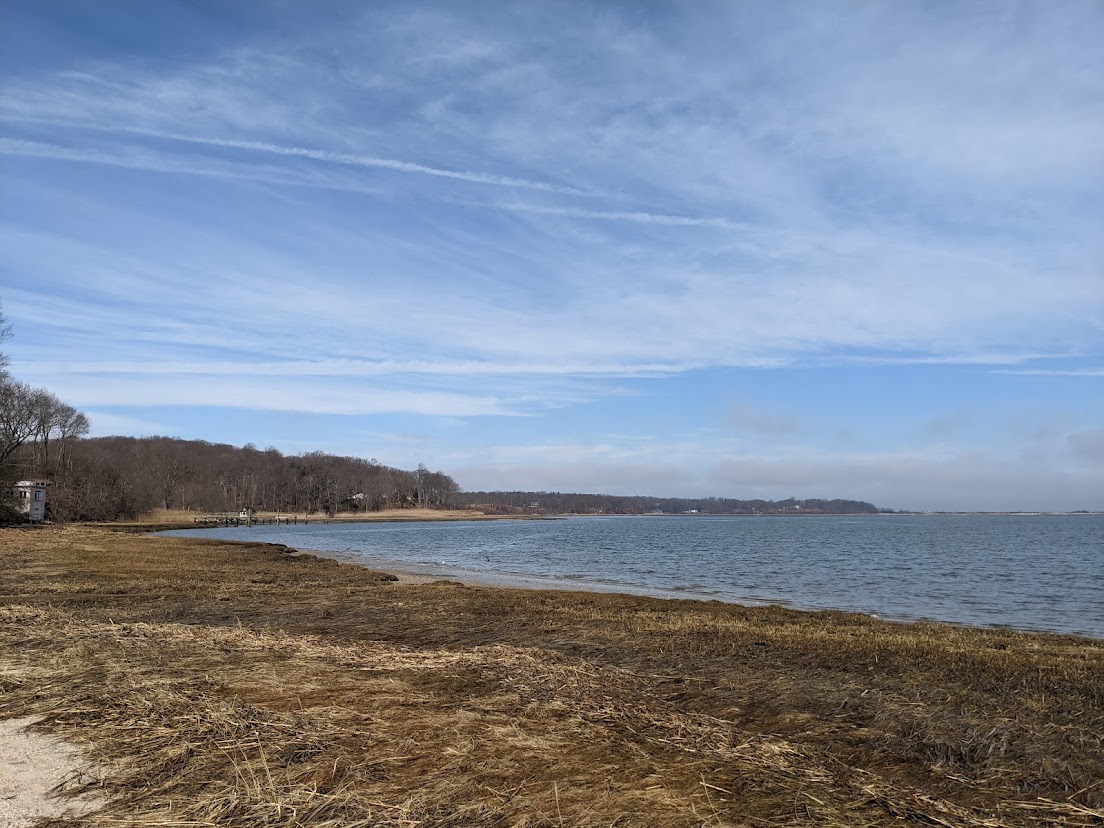
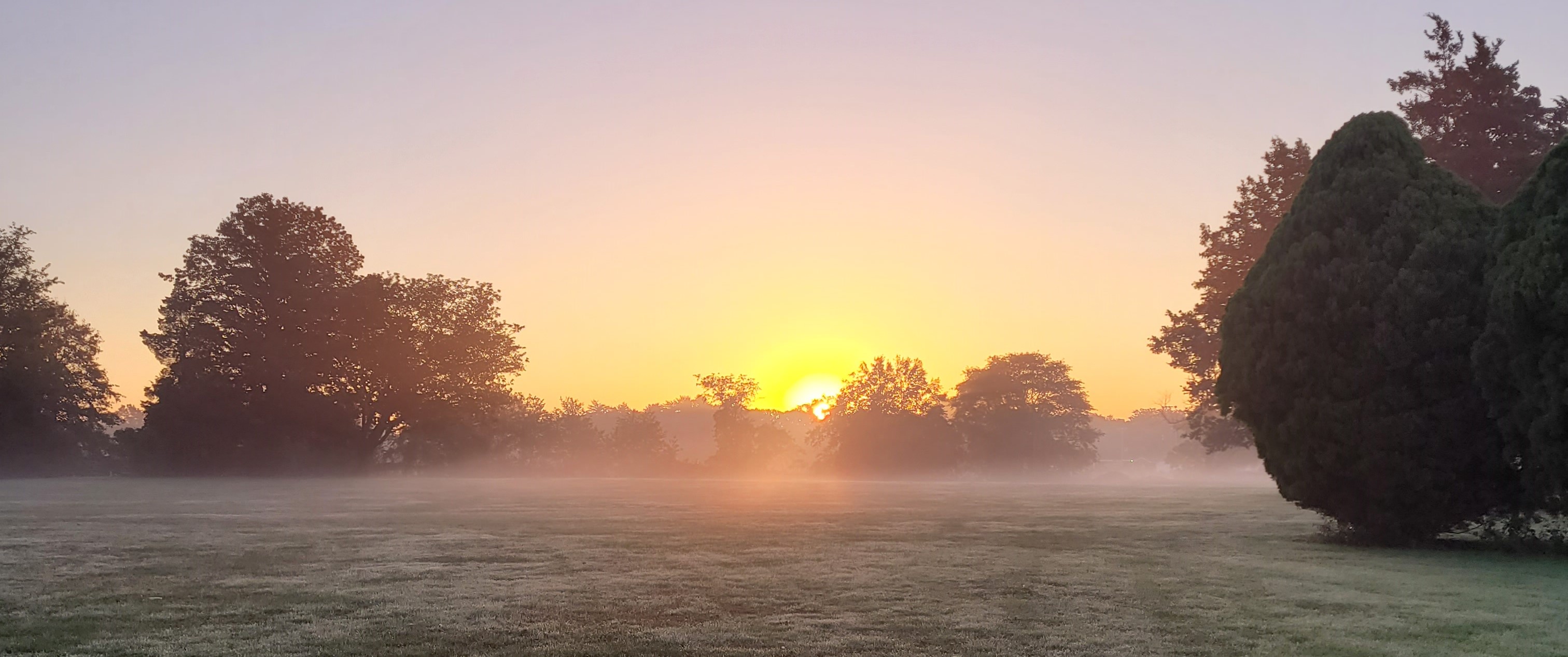
Resource
The Long Island Watershed Action Agenda is a clear-cut blueprint for water quality improvements, aquatic habitat conservation, groundwater protection, and the public engagement necessary to ensure success for the surface, coastal, and ground waters of Nassau and Suffolk counties. The Long Island Watershed Action Agenda is an evolution of the success of the Long Island Nitrogen Action Plan (LINAP) and will expand the scope of its work beyond nitrogen reduction.
Resource
The Long Island Watershed Action Agenda is a clear-cut blueprint for water quality improvements, aquatic habitat conservation, groundwater protection, and the public engagement necessary to ensure success for the surface, coastal, and ground waters of Nassau and Suffolk counties. The Long Island Watershed Action Agenda is an evolution of the success of the Long Island Nitrogen Action Plan (LINAP) and will expand the scope of its work beyond nitrogen reduction.
Website
Sustainable CT provides a wide-ranging menu of resilience best practices, opportunities for grant funding, and a voluntary certification program that recognizes thriving and resilient CT communities. Municipalities choose Sustainable CT actions, implement them, and earn points toward certification.
Website
Sustainable CT provides a wide-ranging menu of resilience best practices, opportunities for grant funding, and a voluntary certification program that recognizes thriving and resilient CT communities. Municipalities choose Sustainable CT actions, implement them, and earn points toward certification.
Incentive Program
The Long Island Garden Rewards Program offers reimbursement of up to $500 total for making your yard more water friendly. Homeowners can be reimbursed for installing rain barrels, rain gardens, or native plantings on their properties. These actions reduce the amount of nitrogen pollution entering local waterways and helps conserve water. Funds are limited and available on a first come, first serve basis.
Due to the high participation in the program, as of May 20, 2025 the Long Island Garden Rewards Program is closed. Thank you to all who participated. Check back for when applications open again!
Incentive Program
The Long Island Garden Rewards Program offers reimbursement of up to $500 total for making your yard more water friendly. Homeowners can be reimbursed for installing rain barrels, rain gardens, or native plantings on their properties. These actions reduce the amount of nitrogen pollution entering local waterways and helps conserve water. Funds are limited and available on a first come, first serve basis.
Due to the high participation in the program, as of May 20, 2025 the Long Island Garden Rewards Program is closed. Thank you to all who participated. Check back for when applications open again!
Incentive Program
The New York State Energy Research and Development Authority (NYSERDA) Clean Energy Communities (CEC) program helps local governments to implement clean energy actions, save energy costs, create jobs, and improve the environment. In addition to providing tools, resources, funding opportunities and technical assistance, the program recognizes and rewards leadership for the completion of clean energy projects and guides a path toward the Clean Energy Communities designation. Find your local CEC Coordinator to start!
Incentive Program
The New York State Energy Research and Development Authority (NYSERDA) Clean Energy Communities (CEC) program helps local governments to implement clean energy actions, save energy costs, create jobs, and improve the environment. In addition to providing tools, resources, funding opportunities and technical assistance, the program recognizes and rewards leadership for the completion of clean energy projects and guides a path toward the Clean Energy Communities designation. Find your local CEC Coordinator to start!
Incentive Program
The Climate Smart Communities (CSC) is a New York State program that helps local governments take action to reduce greenhouse gas emissions and adapt to a changing climate. The program offers grants, rebates for electric vehicles, and free technical assistance. Registered communities have made a commitment to act by passing the CSC pledge. Certified communities are the foremost leaders in the state; they have gone beyond the CSC pledge by completing and documenting a suite of actions that mitigate and adapt to climate change at the local level. Find your local CSC Coordinator to start!
Incentive Program
The Climate Smart Communities (CSC) is a New York State program that helps local governments take action to reduce greenhouse gas emissions and adapt to a changing climate. The program offers grants, rebates for electric vehicles, and free technical assistance. Registered communities have made a commitment to act by passing the CSC pledge. Certified communities are the foremost leaders in the state; they have gone beyond the CSC pledge by completing and documenting a suite of actions that mitigate and adapt to climate change at the local level. Find your local CSC Coordinator to start!
Report
Level of Effort:
Connecticut’s Severe Weather Mitigation and Resiliency Advisory Council was created to help the state better prepare for the growing risks of hurricanes, flooding, and other severe weather events. According to the Council and the CT Insurance Department, many Connecticut homes especially older buildings or houses in coastal and urban areas are highly vulnerable to wind and flood damage. The Council’s final report explains that severe weather is becoming more expensive for families, and many residents lack the insurance or financial resources to recover after storms. To address this, the Council recommends strengthening partnerships with programs like Energize CT, Habitat for Humanity, and the CT Green Bank, and promoting upgrades such as IBHS Fortified™ roofs, which can reduce damage from high winds. They also emphasize the need for public education about flood risk, insurance awareness, and preparedness, along with long-term actions like statewide grant programs, tax credits, and expanded training for contractors and evaluators. Together, these efforts aim to help Connecticut residents protect their homes, reduce storm damage, and build a safer, more resilient future.
You can view the complete Final Report (2025) in PDF format
Report
Level of Effort:
Connecticut’s Severe Weather Mitigation and Resiliency Advisory Council was created to help the state better prepare for the growing risks of hurricanes, flooding, and other severe weather events. According to the Council and the CT Insurance Department, many Connecticut homes especially older buildings or houses in coastal and urban areas are highly vulnerable to wind and flood damage. The Council’s final report explains that severe weather is becoming more expensive for families, and many residents lack the insurance or financial resources to recover after storms. To address this, the Council recommends strengthening partnerships with programs like Energize CT, Habitat for Humanity, and the CT Green Bank, and promoting upgrades such as IBHS Fortified™ roofs, which can reduce damage from high winds. They also emphasize the need for public education about flood risk, insurance awareness, and preparedness, along with long-term actions like statewide grant programs, tax credits, and expanded training for contractors and evaluators. Together, these efforts aim to help Connecticut residents protect their homes, reduce storm damage, and build a safer, more resilient future.
You can view the complete Final Report (2025) in PDF format
Guidance Tool
Level of Effort:
The “Funding and Financing Coastal Resilience” webinar series from the NOAA Office for Coastal Management offers a comprehensive foundation for understanding how coastal resilience projects are funded and financed. These 30- to 45-minute recorded sessions break down complex approaches into accessible lessons, featuring experts who share real world examples, emerging strategies like environmental impact bonds and tax-increment financing, and ways to overcome common obstacles to funding such work. As a resource, the series is ideal if you’re looking to generate ideas, explore different financing pathways, and build your capacity to access and manage funding for nature-based or infrastructure-driven resilience efforts.
Guidance Tool
Level of Effort:
The “Funding and Financing Coastal Resilience” webinar series from the NOAA Office for Coastal Management offers a comprehensive foundation for understanding how coastal resilience projects are funded and financed. These 30- to 45-minute recorded sessions break down complex approaches into accessible lessons, featuring experts who share real world examples, emerging strategies like environmental impact bonds and tax-increment financing, and ways to overcome common obstacles to funding such work. As a resource, the series is ideal if you’re looking to generate ideas, explore different financing pathways, and build your capacity to access and manage funding for nature-based or infrastructure-driven resilience efforts.
Report
Level of Effort:
Community-driven relocation describes a situation where a community decides it will relocate,
in whole or in part, to reduce the risk faced by communities and individuals. This Community-Driven Relocation Subcommittee report provides background on community-driven relocation, an
overview of the current federal legal and programmatic landscape, and potential next steps that
Federal agencies can take, as part of a whole-of-government approach, to support communities
contemplating relocation.
Report
Level of Effort:
Community-driven relocation describes a situation where a community decides it will relocate,
in whole or in part, to reduce the risk faced by communities and individuals. This Community-Driven Relocation Subcommittee report provides background on community-driven relocation, an
overview of the current federal legal and programmatic landscape, and potential next steps that
Federal agencies can take, as part of a whole-of-government approach, to support communities
contemplating relocation.
Guidance Tool
Level of Effort:
This resource outlines six different federal mitigation funding programs. It provides an overview of available options and links to learn more information and apply.
Guidance Tool
Level of Effort:
This resource outlines six different federal mitigation funding programs. It provides an overview of available options and links to learn more information and apply.
Resource
Level of Effort:
Rolling
Discover funding opportunities for your project that elevate the sustainability and resilience of Long Island Sound communities.
Resource
Level of Effort:
Rolling
Discover funding opportunities for your project that elevate the sustainability and resilience of Long Island Sound communities.
Story Map
Level of Effort:
This story map examines the coastal processes and hazards of Long Island and provides options for sustainable and resilient shoreline management. Information is useful for coastal managers, planners and coastal property owners.
Story Map
Level of Effort:
This story map examines the coastal processes and hazards of Long Island and provides options for sustainable and resilient shoreline management. Information is useful for coastal managers, planners and coastal property owners.
Guidance Tool
Level of Effort:
Website includes guidebook, fact sheets and open funding opportunities available under the Bipartisan Infrastructure Law. The goal is to help partners across the country know what to apply for, who to contact for help, and how to get ready to rebuild.
Guidance Tool
Level of Effort:
Website includes guidebook, fact sheets and open funding opportunities available under the Bipartisan Infrastructure Law. The goal is to help partners across the country know what to apply for, who to contact for help, and how to get ready to rebuild.
Guidance Tool
Level of Effort:
CT DEEP recently released a new tool allowing users to search for DEEP financial assistance programs based on a variety of parameters such as eligibility requirements, grant cycle status, project types, and more. This resource and offers “one-stop shopping” for many DEEP funding opportunities.
Guidance Tool
Level of Effort:
CT DEEP recently released a new tool allowing users to search for DEEP financial assistance programs based on a variety of parameters such as eligibility requirements, grant cycle status, project types, and more. This resource and offers “one-stop shopping” for many DEEP funding opportunities.
Data
Level of Effort:
This portal contains the comprehensive dataset of awarded projects for the Water Quality Improvement Project Program (WQIP) and the Non-Agricultural Nonpoint Source Planning and MS4 Mapping Grant (NPG). Data is displayed simultaneously on a map and data table and can be filtered by Grant Program, Applicant, County, Project Type, and Funding Source.
Data
Level of Effort:
This portal contains the comprehensive dataset of awarded projects for the Water Quality Improvement Project Program (WQIP) and the Non-Agricultural Nonpoint Source Planning and MS4 Mapping Grant (NPG). Data is displayed simultaneously on a map and data table and can be filtered by Grant Program, Applicant, County, Project Type, and Funding Source.
Report
Level of Effort:
The Connecticut Conference of Municipalities (CCM) recently released a comprehensive report on understanding and addressing the occurrence of local flooding. Developed in collaboration with leading engineering firm Fuss & O’Neill, the study was motivated by the need to address the growing concerns surrounding flood risks across Connecticut. The report evaluates current flood management practices and outlines a series of strategic interventions actionable recommendations to enhance community resilience.
Report
Level of Effort:
The Connecticut Conference of Municipalities (CCM) recently released a comprehensive report on understanding and addressing the occurrence of local flooding. Developed in collaboration with leading engineering firm Fuss & O’Neill, the study was motivated by the need to address the growing concerns surrounding flood risks across Connecticut. The report evaluates current flood management practices and outlines a series of strategic interventions actionable recommendations to enhance community resilience.
Guidance Tool
Level of Effort:
FEMA’s National Resilience Guidance document is intended to help all individuals, communities, and organizations understand our nation’s vision for resilience, the key principles that must be applied to strengthen resilience, and the players and systems that contribute to resilience. It also outlines how to strengthen resilience by organizing and engaging people, incorporating resilience concepts into planning efforts, creating change through policies, prioritizing projects and programs, financing resilience efforts, and measuring and evaluating resilience. Finally, the NRG includes a Resilience Maturity Model that illustrates stages in the evolution of a community’s approach to resilience.
Guidance Tool
Level of Effort:
FEMA’s National Resilience Guidance document is intended to help all individuals, communities, and organizations understand our nation’s vision for resilience, the key principles that must be applied to strengthen resilience, and the players and systems that contribute to resilience. It also outlines how to strengthen resilience by organizing and engaging people, incorporating resilience concepts into planning efforts, creating change through policies, prioritizing projects and programs, financing resilience efforts, and measuring and evaluating resilience. Finally, the NRG includes a Resilience Maturity Model that illustrates stages in the evolution of a community’s approach to resilience.
Guidance Tool
Level of Effort:
This toolkit describes “how” local government leads and partners can design more fundable projects by pulling specific policy levers, seeking key partnerships, using innovative accounting practices, inverting power structures, and rethinking and redesigning internal processes. It will help local government leads and partners operate within current finance and policy systems to better prepare themselves and their communities for climate resilience funding and finance.
Guidance Tool
Level of Effort:
This toolkit describes “how” local government leads and partners can design more fundable projects by pulling specific policy levers, seeking key partnerships, using innovative accounting practices, inverting power structures, and rethinking and redesigning internal processes. It will help local government leads and partners operate within current finance and policy systems to better prepare themselves and their communities for climate resilience funding and finance.
Guidance Tool
Level of Effort:
A policy guide to help formulate position statements, legislative recommendations, and other policy-based actions, and to recommend program funding at the federal and state government levels.
Guidance Tool
Level of Effort:
A policy guide to help formulate position statements, legislative recommendations, and other policy-based actions, and to recommend program funding at the federal and state government levels.
Guidance Tool
Level of Effort:
This guidance document is intended for stakeholders pursuing FEMA HMA grants for nature-based solutions to mitigate risks associated with flooding (riverine and coastal) and wildfire.
Guidance Tool
Level of Effort:
This guidance document is intended for stakeholders pursuing FEMA HMA grants for nature-based solutions to mitigate risks associated with flooding (riverine and coastal) and wildfire.
Training
The Long Island Sound Community Impact Fund is hosting a virtual training focused on how organizations can meet match requirements for funding opportunities. This session is designed to help nonprofits and institutions build capacity by learning how to be more strategic and prepared when applying for grants that require matching funds. The training will take place on February 5, 2026, from 1:00 to 2:30 PM (Eastern Time) and will be held on Zoom. Registration is required.
The training will be led by Melba Mitchell, co-owner of J.O. Mitchell Company, a CPA firm that specializes in supporting nonprofits. Her work focuses on auditing, bookkeeping, tax compliance, and financial consulting, all aimed at improving transparency and accountability with funders.
Training
The Long Island Sound Community Impact Fund is hosting a virtual training focused on how organizations can meet match requirements for funding opportunities. This session is designed to help nonprofits and institutions build capacity by learning how to be more strategic and prepared when applying for grants that require matching funds. The training will take place on February 5, 2026, from 1:00 to 2:30 PM (Eastern Time) and will be held on Zoom. Registration is required.
The training will be led by Melba Mitchell, co-owner of J.O. Mitchell Company, a CPA firm that specializes in supporting nonprofits. Her work focuses on auditing, bookkeeping, tax compliance, and financial consulting, all aimed at improving transparency and accountability with funders.
Training
The Long Island Sound Sustainable and Resilient Communities (SRC) Team held our 2025 Annual Workshop virtually as three sessions over two days. Session topics focused on resources and tools available to help take advantage of state resilience funds, a panel discussion on why and how to incorporate nature-based solutions into resilience planning, and an overview of our available assistance programs.
Session 3 – LIS Resilience Planning Support Program: New Round Available & Showcase of Completed Projects was held on Friday, December 5, 2025. Participants learned about the newly available 3rd round of the LIS Resilience Planning Support Program and heard from three communities who received awards through the first round of the Program. Video of the session along with supporting materials is available below.



Training
The Long Island Sound Sustainable and Resilient Communities (SRC) Team held our 2025 Annual Workshop virtually as three sessions over two days. Session topics focused on resources and tools available to help take advantage of state resilience funds, a panel discussion on why and how to incorporate nature-based solutions into resilience planning, and an overview of our available assistance programs.
Session 3 – LIS Resilience Planning Support Program: New Round Available & Showcase of Completed Projects was held on Friday, December 5, 2025. Participants learned about the newly available 3rd round of the LIS Resilience Planning Support Program and heard from three communities who received awards through the first round of the Program. Video of the session along with supporting materials is available below.



Training
The Long Island Sound Sustainable and Resilient Communities (SRC) Team held our 2025 Annual Workshop virtually as three sessions over two days. Session topics focused on resources and tools available to help take advantage of state resilience funds, a panel discussion on why and how to incorporate nature-based solutions into resilience planning, and an overview of our available assistance programs.
Session 2 – Using Nature-Based Solutions for Resilience: A Panel Discussion on Common Challenges & Strategies for Success was held on Thursday, December 4, 2025. In this interactive session, practitioners and experts discussed techniques for integrating nature-based solutions into resilience initiatives. The panel highlighted common challenges and shared successful strategies from projects in the Long Island Sound region. Video of the session along with supporting materials is available below.



Training
The Long Island Sound Sustainable and Resilient Communities (SRC) Team held our 2025 Annual Workshop virtually as three sessions over two days. Session topics focused on resources and tools available to help take advantage of state resilience funds, a panel discussion on why and how to incorporate nature-based solutions into resilience planning, and an overview of our available assistance programs.
Session 2 – Using Nature-Based Solutions for Resilience: A Panel Discussion on Common Challenges & Strategies for Success was held on Thursday, December 4, 2025. In this interactive session, practitioners and experts discussed techniques for integrating nature-based solutions into resilience initiatives. The panel highlighted common challenges and shared successful strategies from projects in the Long Island Sound region. Video of the session along with supporting materials is available below.



Training
The Long Island Sound Sustainable and Resilient Communities (SRC) Team held our 2025 Annual Workshop virtually as three sessions over two days. Session topics focused on resources and tools available to help take advantage of state resilience funds, a panel discussion on why and how to incorporate nature-based solutions into resilience planning, and an overview of our available assistance programs.
Session 1 – Resilience 101: Helpful Tools and Strategies for Building Community Resilience was held on Thursday, December 4, 2025. Participants learned about available resilience resources and tools and then moved into breakout rooms to hear about state climate certification programs and resilience funds in both NY and CT. Videos of the main session and both breakout rooms are available below, along with supporting materials.



Training
The Long Island Sound Sustainable and Resilient Communities (SRC) Team held our 2025 Annual Workshop virtually as three sessions over two days. Session topics focused on resources and tools available to help take advantage of state resilience funds, a panel discussion on why and how to incorporate nature-based solutions into resilience planning, and an overview of our available assistance programs.
Session 1 – Resilience 101: Helpful Tools and Strategies for Building Community Resilience was held on Thursday, December 4, 2025. Participants learned about available resilience resources and tools and then moved into breakout rooms to hear about state climate certification programs and resilience funds in both NY and CT. Videos of the main session and both breakout rooms are available below, along with supporting materials.



Training
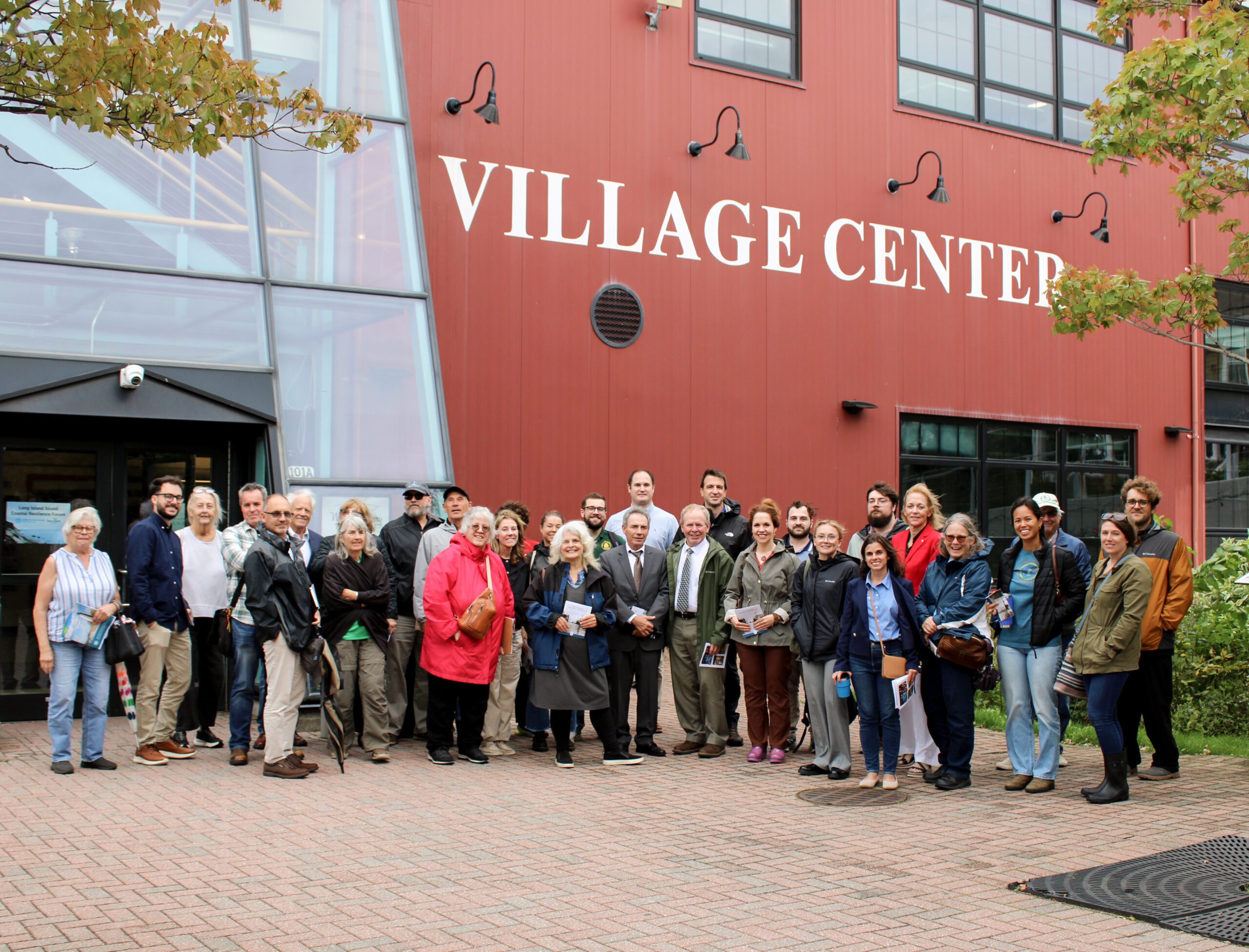
On October 8, 2025 state and local decision makers, municipal staff, and other interested parties working to address flooding, shoreline erosion and other coastal issues gathered at the Port Jefferson Village Center in Port Jefferson, NY for the 3rd Annual Suffolk County Coastal Resilience Forum. The Forum provided a chance to share information on best practices, discuss challenges, identify opportunities to increase resilience, and enhance coordination across communities. Forum attendees heard updates on State resilience initiatives from the NYS Department of Environmental Conservation and NYS Division of Homeland Security and Emergency Services, as well as presentations on new resilience tools and resources from Seatuck Environmental Association, the U.S. Geological Survey, New York Sea Grant, and Suffolk County Soil and Water Conservation District. In the afternoon, Village of Port Jefferson Mayor, Lauren Sheprow, presented on the Village’s resilience issues and initiatives and then led attendees on a walking tour of the Village highlighting flooding hotspots, challenges faced by local businesses and residents, and efforts to help mitigate flooding and increase community resilience.
The event was hosted by Long Island Sound Partnership and New York Sea Grant, in partnership with the Village of Port Jefferson and Suffolk County Soil and Water Conservation District.


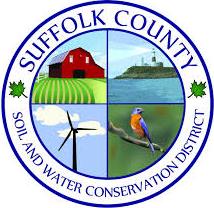

Training

On October 8, 2025 state and local decision makers, municipal staff, and other interested parties working to address flooding, shoreline erosion and other coastal issues gathered at the Port Jefferson Village Center in Port Jefferson, NY for the 3rd Annual Suffolk County Coastal Resilience Forum. The Forum provided a chance to share information on best practices, discuss challenges, identify opportunities to increase resilience, and enhance coordination across communities. Forum attendees heard updates on State resilience initiatives from the NYS Department of Environmental Conservation and NYS Division of Homeland Security and Emergency Services, as well as presentations on new resilience tools and resources from Seatuck Environmental Association, the U.S. Geological Survey, New York Sea Grant, and Suffolk County Soil and Water Conservation District. In the afternoon, Village of Port Jefferson Mayor, Lauren Sheprow, presented on the Village’s resilience issues and initiatives and then led attendees on a walking tour of the Village highlighting flooding hotspots, challenges faced by local businesses and residents, and efforts to help mitigate flooding and increase community resilience.
The event was hosted by Long Island Sound Partnership and New York Sea Grant, in partnership with the Village of Port Jefferson and Suffolk County Soil and Water Conservation District.




Training
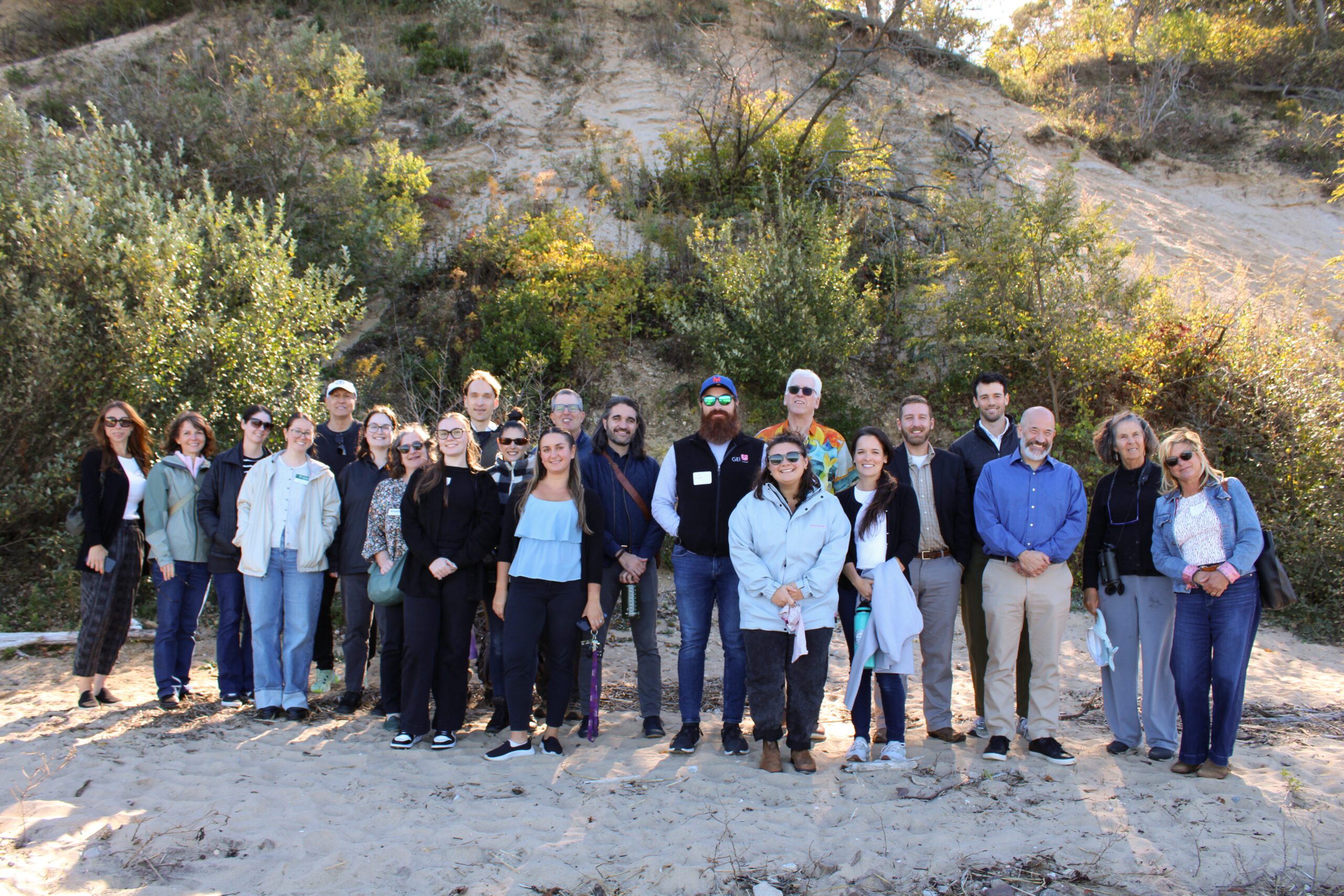
2025 Nassau Coastal Resilience Forum field trip to Sands Point Preserve. Credit: Sumayyah Uddin / NYSG
On October 9, 2025 state and local decision makers, municipal staff, and other interested parties working to address flooding, shoreline erosion and other coastal issues gathered at the Sands Point Preserve Conservancy in Sands Point, NY for the 3rd Annual Nassau County Coastal Resilience Forum. The Forum provided a chance to share information on best practices, discuss challenges, identify opportunities to increase resilience, and enhance coordination across communities. Forum attendees heard updates on State resilience initiatives from agencies like the NYS Department of Environmental Conservation and NYS Division of Homeland Security and Emergency Services, as well as presentations on new resilience tools and resources from Seatuck Environmental Association, the U.S. Geological Survey, New York Sea Grant, Cornell Cooperative Extension of Nassau County, and Nassau County Soil and Water Conservation District. In the afternoon, Forum attendees were given a guided tour of the recent expansions to the bluff stabilization project at the Preserve.
The event was hosted by Long Island Sound Partnership and New York Sea Grant, in partnership with the Sands Point Preserve Conservancy and Nassau and Suffolk County Soil and Water Conservation Districts.




Training

2025 Nassau Coastal Resilience Forum field trip to Sands Point Preserve. Credit: Sumayyah Uddin / NYSG
On October 9, 2025 state and local decision makers, municipal staff, and other interested parties working to address flooding, shoreline erosion and other coastal issues gathered at the Sands Point Preserve Conservancy in Sands Point, NY for the 3rd Annual Nassau County Coastal Resilience Forum. The Forum provided a chance to share information on best practices, discuss challenges, identify opportunities to increase resilience, and enhance coordination across communities. Forum attendees heard updates on State resilience initiatives from agencies like the NYS Department of Environmental Conservation and NYS Division of Homeland Security and Emergency Services, as well as presentations on new resilience tools and resources from Seatuck Environmental Association, the U.S. Geological Survey, New York Sea Grant, Cornell Cooperative Extension of Nassau County, and Nassau County Soil and Water Conservation District. In the afternoon, Forum attendees were given a guided tour of the recent expansions to the bluff stabilization project at the Preserve.
The event was hosted by Long Island Sound Partnership and New York Sea Grant, in partnership with the Sands Point Preserve Conservancy and Nassau and Suffolk County Soil and Water Conservation Districts.




Training
In Spring 2025 the SRC Team hosted funding workshops on Long Island, NY and New Haven, CT.

The Sustainable and Resilient Communities (SRC) team hosted the 2nd Annual Connecticut Regional Funding Workshop on Monday, March 31, 2025 to provide information on funding opportunities to support sustainability and resilience-focused projects. Attendees heard from program officers representing various local, state, and regional funding organizations and were able to engage in discussions with funders and assistance programs to explore project ideas and ways to improve funding applications. A panel of successful awardees shared their experiences and strategies. Attendees also worked through the guidance in the SRC Resilience Planning Guide. The workshop is intended for municipal officials and staff, nonprofits, community organizations, and other groups interested in planning and implementing projects that advance the sustainability and resilience of Long Island Sound communities.

Training
In Spring 2025 the SRC Team hosted funding workshops on Long Island, NY and New Haven, CT.

The Sustainable and Resilient Communities (SRC) team hosted the 2nd Annual Connecticut Regional Funding Workshop on Monday, March 31, 2025 to provide information on funding opportunities to support sustainability and resilience-focused projects. Attendees heard from program officers representing various local, state, and regional funding organizations and were able to engage in discussions with funders and assistance programs to explore project ideas and ways to improve funding applications. A panel of successful awardees shared their experiences and strategies. Attendees also worked through the guidance in the SRC Resilience Planning Guide. The workshop is intended for municipal officials and staff, nonprofits, community organizations, and other groups interested in planning and implementing projects that advance the sustainability and resilience of Long Island Sound communities.

Training
In Spring 2025 the SRC team hosted funding workshops on Long Island, NY and New Haven, CT.
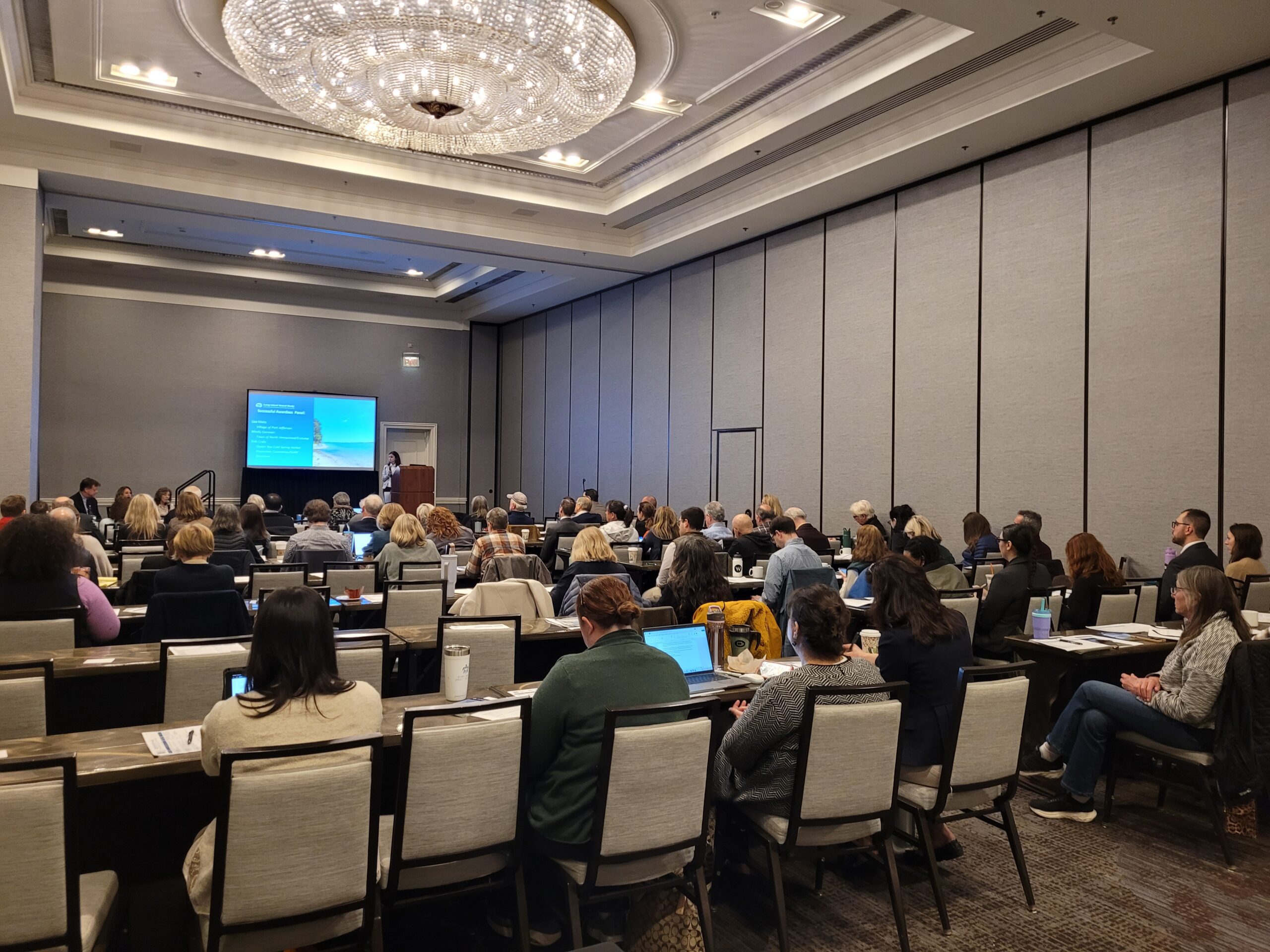
The Sustainable and Resilient Communities (SRC) team hosted the 2nd Annual Long Island Regional Funding Workshop on March 27, 2025 to provide information on funding opportunities to support sustainability and resilience-focused projects. Attendees heard from program officers representing 35 local, state, and Long Island Sound funding organizations and were able to engage in discussions with funders to explore project ideas and ways to improve funding applications and worked through guidance in the Resilience Planning Guide. Attendees also heard from a panel of successful awardees about their experiences and strategies.

Training
In Spring 2025 the SRC team hosted funding workshops on Long Island, NY and New Haven, CT.

The Sustainable and Resilient Communities (SRC) team hosted the 2nd Annual Long Island Regional Funding Workshop on March 27, 2025 to provide information on funding opportunities to support sustainability and resilience-focused projects. Attendees heard from program officers representing 35 local, state, and Long Island Sound funding organizations and were able to engage in discussions with funders to explore project ideas and ways to improve funding applications and worked through guidance in the Resilience Planning Guide. Attendees also heard from a panel of successful awardees about their experiences and strategies.

Training
The Long Island Sound Sustainable and Resilient Communities (SRC) Team held our 2024 Annual Workshop virtually as three sessions over two days. Session topics focused on our assistance programs, new regional resilience resources and tools, and a discussion on planning for inundation and different considerations communities may face.
Session 3 – Planning for Inundation was held on Wednesday, December 11th from 10 AM-12 PM. Participants heard from communities and regional entities that are using or considering different aspects of planning for inundation, including buyout programs, land use policies, and community perspectives on retreat/relocation.


Training
The Long Island Sound Sustainable and Resilient Communities (SRC) Team held our 2024 Annual Workshop virtually as three sessions over two days. Session topics focused on our assistance programs, new regional resilience resources and tools, and a discussion on planning for inundation and different considerations communities may face.
Session 3 – Planning for Inundation was held on Wednesday, December 11th from 10 AM-12 PM. Participants heard from communities and regional entities that are using or considering different aspects of planning for inundation, including buyout programs, land use policies, and community perspectives on retreat/relocation.


Training
The Long Island Sound Sustainable and Resilient Communities (SRC) Team held our 2024 Annual Workshop virtually as three sessions over two days. Session topics focused on our assistance programs, new regional resilience resources and tools, and a discussion on planning for inundation and different considerations communities may face.
Session 2 – Resilience Tools was held on Tuesday, December 10th from 1:30-3:30 PM. Participants learned about new Resilience Tools being developed and used throughout coastal Long Island Sound.


Training
The Long Island Sound Sustainable and Resilient Communities (SRC) Team held our 2024 Annual Workshop virtually as three sessions over two days. Session topics focused on our assistance programs, new regional resilience resources and tools, and a discussion on planning for inundation and different considerations communities may face.
Session 2 – Resilience Tools was held on Tuesday, December 10th from 1:30-3:30 PM. Participants learned about new Resilience Tools being developed and used throughout coastal Long Island Sound.


Training
The Long Island Sound Sustainable and Resilient Communities (SRC) Team held our 2024 Annual Workshop virtually as three sessions over two days. Session topics focused on our assistance programs, new regional resilience resources and tools, and a discussion on planning for inundation and different considerations communities may face.
Session 1 – SRC Resilience Assistance Programs was held on Tuesday, December 10th from 10-11:30 AM. Participants learned about our Sustainable and Resilient Communities resilience assistance programs and heard from communities who have successfully utilized them to advance resilience project plans, build capacity, and secure competitive grant funding!


Training
The Long Island Sound Sustainable and Resilient Communities (SRC) Team held our 2024 Annual Workshop virtually as three sessions over two days. Session topics focused on our assistance programs, new regional resilience resources and tools, and a discussion on planning for inundation and different considerations communities may face.
Session 1 – SRC Resilience Assistance Programs was held on Tuesday, December 10th from 10-11:30 AM. Participants learned about our Sustainable and Resilient Communities resilience assistance programs and heard from communities who have successfully utilized them to advance resilience project plans, build capacity, and secure competitive grant funding!


Training
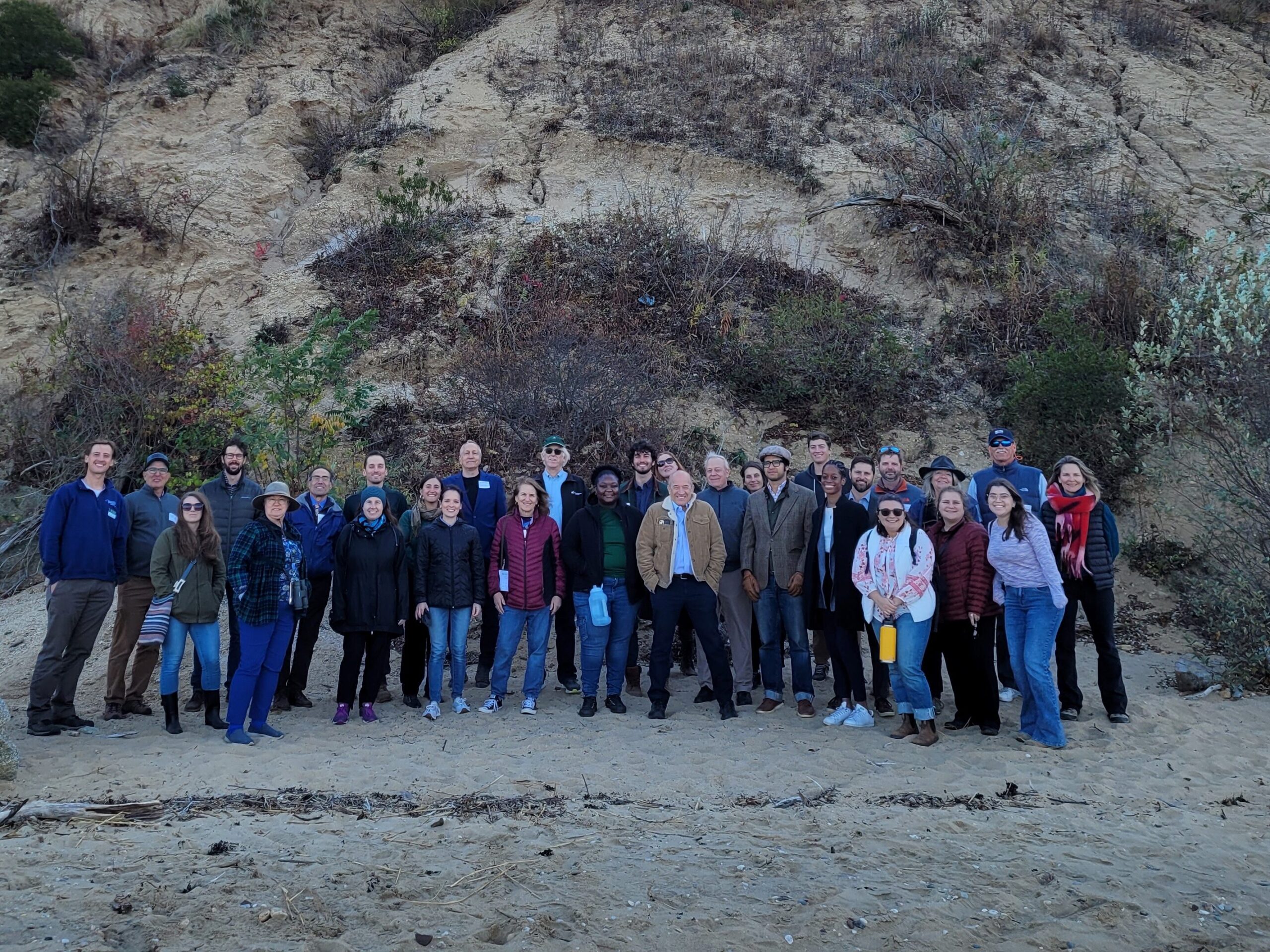
2024 Nassau Coastal Resilience Forum field trip to Sands Point Preserve. Credit: NYSG
On October 28, 2024, state and local decision makers, municipal staff, and other interested parties working to address coastal issues gathered at the Sands Point Preserve Conservancy in Sands Point, NY for the 2nd Annual Nassau County Coastal Resilience Forum to identify opportunities to increase resilience, learn about best practices, and enhance coordination across communities. There were presentations on the Long Island Sound Resilience Resource Hub & Assistance Programs, NYSDEC Office of Climate Change updates, marsh conservation planning, bluff management and restoration, and nature-based solutions to increase shoreline resilience. There was also a guided walking tour of the resilience projects at Sands Point Preserve.
The event is hosted by Long Island Sound Study and New York Sea Grant, in partnership with the Sands Point Preserve Conservancy and Nassau and Suffolk Soil and Water Conservation Districts.



Training

2024 Nassau Coastal Resilience Forum field trip to Sands Point Preserve. Credit: NYSG
On October 28, 2024, state and local decision makers, municipal staff, and other interested parties working to address coastal issues gathered at the Sands Point Preserve Conservancy in Sands Point, NY for the 2nd Annual Nassau County Coastal Resilience Forum to identify opportunities to increase resilience, learn about best practices, and enhance coordination across communities. There were presentations on the Long Island Sound Resilience Resource Hub & Assistance Programs, NYSDEC Office of Climate Change updates, marsh conservation planning, bluff management and restoration, and nature-based solutions to increase shoreline resilience. There was also a guided walking tour of the resilience projects at Sands Point Preserve.
The event is hosted by Long Island Sound Study and New York Sea Grant, in partnership with the Sands Point Preserve Conservancy and Nassau and Suffolk Soil and Water Conservation Districts.



Training
On October 29, 2024, state and local decision makers, municipal staff, and other interested parties working to address coastal issues gathered at the Dorothy P. Flint 4-H Camp in Riverhead, NY to identify opportunities to increase resilience, learn about best practices, and enhance coordination across communities. There were presentations on the Long Island Sound Resilience Resource Hub, NYSDEC Climate Office updates, marsh conservation planning, bluff management and restoration, and nature-based solutions to increase shoreline resilience. There was also a field trip to Iron Pier Beach/Maidstone Landing to view and learn about a community bluff restoration project.
This event was hosted by Long Island Sound Study and New York Sea Grant, in partnership with Nassau and Suffolk Soil and Water Conservation Districts, Nassau CCE, and Maidstone Landing.



Training
On October 29, 2024, state and local decision makers, municipal staff, and other interested parties working to address coastal issues gathered at the Dorothy P. Flint 4-H Camp in Riverhead, NY to identify opportunities to increase resilience, learn about best practices, and enhance coordination across communities. There were presentations on the Long Island Sound Resilience Resource Hub, NYSDEC Climate Office updates, marsh conservation planning, bluff management and restoration, and nature-based solutions to increase shoreline resilience. There was also a field trip to Iron Pier Beach/Maidstone Landing to view and learn about a community bluff restoration project.
This event was hosted by Long Island Sound Study and New York Sea Grant, in partnership with Nassau and Suffolk Soil and Water Conservation Districts, Nassau CCE, and Maidstone Landing.



Training
In Spring 2024 the SRC team hosted funding workshops in eastern CT, western CT, Westchester NY, and Long Island NY.
The Sustainable and Resilient Communities (SRC) team hosted a regional workshop on March 28, 2024, on Long Island, NY to provide information on funding opportunities to support sustainability and resilience projects. Attendees heard from program officers representing various local, state, and Long Island Sound funding organizations and were able to engage in discussions with funders to explore project ideas and ways to improve funding applications. Attendees also heard from a panel of successful awardees about their experiences and strategies.

Training
In Spring 2024 the SRC team hosted funding workshops in eastern CT, western CT, Westchester NY, and Long Island NY.
The Sustainable and Resilient Communities (SRC) team hosted a regional workshop on March 28, 2024, on Long Island, NY to provide information on funding opportunities to support sustainability and resilience projects. Attendees heard from program officers representing various local, state, and Long Island Sound funding organizations and were able to engage in discussions with funders to explore project ideas and ways to improve funding applications. Attendees also heard from a panel of successful awardees about their experiences and strategies.

Training
In Spring 2024 the SRC team hosted funding workshops in eastern CT, western CT, Westchester NY, and Long Island NY.
The Sustainable and Resilient Communities (SRC) team held this Regional Funding Workshop for Western Connecticut at Housatonic Community College in Bridgeport, CT. Attendees learned about resilience planning steps and resources, heard from state and local funding organizations, learned about environmental justice considerations, discussed questions with a panel of recent awardees, and had the opportunity to participate in roundtables to strategize improving their applications.

Training
In Spring 2024 the SRC team hosted funding workshops in eastern CT, western CT, Westchester NY, and Long Island NY.
The Sustainable and Resilient Communities (SRC) team held this Regional Funding Workshop for Western Connecticut at Housatonic Community College in Bridgeport, CT. Attendees learned about resilience planning steps and resources, heard from state and local funding organizations, learned about environmental justice considerations, discussed questions with a panel of recent awardees, and had the opportunity to participate in roundtables to strategize improving their applications.

Training
In Spring 2024 the SRC team hosted funding workshops in eastern CT, western CT, Westchester NY, and Long Island NY.
The Sustainable and Resilient Communities (SRC) team held this Regional Funding
Workshop for Eastern Connecticut at UConn Avery Point in Groton, CT. Attendees learned about resilience planning steps and resources, heard from state and local funding organizations, learned about environmental justice considerations, discussed questions with a panel of recent awardees, and had the opportunity to participate in roundtables to strategize improving their applications.

Training
In Spring 2024 the SRC team hosted funding workshops in eastern CT, western CT, Westchester NY, and Long Island NY.
The Sustainable and Resilient Communities (SRC) team held this Regional Funding
Workshop for Eastern Connecticut at UConn Avery Point in Groton, CT. Attendees learned about resilience planning steps and resources, heard from state and local funding organizations, learned about environmental justice considerations, discussed questions with a panel of recent awardees, and had the opportunity to participate in roundtables to strategize improving their applications.

Training
The programs covered in this webinar were developed by the Sustainable and Resilient Communities Extension Professional team to assist with the development of sustainability and resilience focused projects that will impact a community or communities within or partially within the Long Island Sound coastal boundary. On Oct. 16, 2023 a new LIS Resilience Planning Support Program in addition to a second round of the Long Island Sound Resilience Grant Writing Assistance Program were made available for municipalities and community organizations. These separate programs (Track 1 and Track 2) are supported by funding from the U.S. EPA through the Long Island Sound Study and administered through New York Sea Grant and Connecticut Sea Grant.


Training
The programs covered in this webinar were developed by the Sustainable and Resilient Communities Extension Professional team to assist with the development of sustainability and resilience focused projects that will impact a community or communities within or partially within the Long Island Sound coastal boundary. On Oct. 16, 2023 a new LIS Resilience Planning Support Program in addition to a second round of the Long Island Sound Resilience Grant Writing Assistance Program were made available for municipalities and community organizations. These separate programs (Track 1 and Track 2) are supported by funding from the U.S. EPA through the Long Island Sound Study and administered through New York Sea Grant and Connecticut Sea Grant.


Training
The second annual Long Island Sound Bi-State Sustainable and Resilient Communities Workshop brought together nearly 200 people virtually on Dec. 7, 2023 to learn about a new Long Island Sound Resilience Resource Hub (launching in early 2024), hear from communities and groups around the Sound working on resilience planning, and consider pathways for updating codes and ordinances. Videos of the workshop’s six sessions are available on YouTube. They can be accessed below along with supporting documents.


Training
The second annual Long Island Sound Bi-State Sustainable and Resilient Communities Workshop brought together nearly 200 people virtually on Dec. 7, 2023 to learn about a new Long Island Sound Resilience Resource Hub (launching in early 2024), hear from communities and groups around the Sound working on resilience planning, and consider pathways for updating codes and ordinances. Videos of the workshop’s six sessions are available on YouTube. They can be accessed below along with supporting documents.


Training
In this webinar hosted by the NYS Department of Environmental Conservation, participants learned about successful strategies to access and manage NYS grant funding from their peers. Municipalities shared information such as; how they access grant funds, what barriers they’ve had to overcome, lessons learned, the skill sets needed, and who are the key players necessary to access grant funding. View the recording to see how you can access grant funding.

Training
In this webinar hosted by the NYS Department of Environmental Conservation, participants learned about successful strategies to access and manage NYS grant funding from their peers. Municipalities shared information such as; how they access grant funds, what barriers they’ve had to overcome, lessons learned, the skill sets needed, and who are the key players necessary to access grant funding. View the recording to see how you can access grant funding.

Training
The first annual Long Island Sound Bi-State Sustainable and Resilient Communities Workshop brought together more than 260 people virtually on Dec. 1, 2022 to learn about opportunities to increase the resilience of the Sound’s communities to climate change and other environmental threats. Interactive sessions included opportunities to learn more about the SRC Extension Professionals’ needs assessment findings and recommendations, the newly released Long Island Sound Resilience Grant Writing Assistance Program, and tips for success with Long Island Sound funding opportunities. Concurrent breakout sessions highlighted the work of partners related to shoreline planning and implementation, using green infrastructure for stormwater management, sustainable climate planning for relocation, and new sustainability/resilience tools available in both New York and Connecticut. Videos of the workshop’s six sessions are available on YouTube. They can be accessed below along with supporting documents.


Training
The first annual Long Island Sound Bi-State Sustainable and Resilient Communities Workshop brought together more than 260 people virtually on Dec. 1, 2022 to learn about opportunities to increase the resilience of the Sound’s communities to climate change and other environmental threats. Interactive sessions included opportunities to learn more about the SRC Extension Professionals’ needs assessment findings and recommendations, the newly released Long Island Sound Resilience Grant Writing Assistance Program, and tips for success with Long Island Sound funding opportunities. Concurrent breakout sessions highlighted the work of partners related to shoreline planning and implementation, using green infrastructure for stormwater management, sustainable climate planning for relocation, and new sustainability/resilience tools available in both New York and Connecticut. Videos of the workshop’s six sessions are available on YouTube. They can be accessed below along with supporting documents.


Training
On Thursday, June 15, Save the Sound, Connecticut Sea Grant, New York Sea Grant, The Pew Charitable Trusts, and Earth Economics hosted an invite-only workshop, “Expanding the Benefit-Cost Analysis for Nature-Based Solutions,” which was attended by more than 50 professionals from federal and state agencies, municipalities, environmental NGOs, and engineering firms.
The workshop reviewed the results of an effort by Save the Sound and Earth Economics to identify opportunities for the Federal Emergency Management Agency (FEMA) and other federal agencies and funders to improve the ability of benefit-cost analysis tools to account for ecosystem-based benefits. See here for the associated report, Expanding FEMA’s Benefit Cost Analysis: Chittenden Living Shoreline Case Study (published June 2023).



Training
On Thursday, June 15, Save the Sound, Connecticut Sea Grant, New York Sea Grant, The Pew Charitable Trusts, and Earth Economics hosted an invite-only workshop, “Expanding the Benefit-Cost Analysis for Nature-Based Solutions,” which was attended by more than 50 professionals from federal and state agencies, municipalities, environmental NGOs, and engineering firms.
The workshop reviewed the results of an effort by Save the Sound and Earth Economics to identify opportunities for the Federal Emergency Management Agency (FEMA) and other federal agencies and funders to improve the ability of benefit-cost analysis tools to account for ecosystem-based benefits. See here for the associated report, Expanding FEMA’s Benefit Cost Analysis: Chittenden Living Shoreline Case Study (published June 2023).



Training
This online information session held Sept. 19, and repeated Sept. 21, provides an introduction to resilience planning in the Long Island Sound region. It includes discussions on local climate impacts and projections, resilience planning strategies, and climate certification programs for both New York and Connecticut municipalities. In addition to the main presentation, videos of the Connecticut and New York breakout sessions can be accessed below. The presentations and other resource materials are available here.





Training
This online information session held Sept. 19, and repeated Sept. 21, provides an introduction to resilience planning in the Long Island Sound region. It includes discussions on local climate impacts and projections, resilience planning strategies, and climate certification programs for both New York and Connecticut municipalities. In addition to the main presentation, videos of the Connecticut and New York breakout sessions can be accessed below. The presentations and other resource materials are available here.





Training
The Long Island Sound Community Impact Fund (LISCIF) is a partnership between Restore America’s Estuaries, the U.S. Environmental Protection Agency, and the Long Island Sound Study (LISS). The purpose of LISCIF is to build capacity for organizations located in communities affected by disproportionate environmental and human health risks. The purpose of the LISCIF is to provide technical and financial assistance to communities and improve the quality and accessibility of the Long Island Sound. The Long Island Sound Community Impact Fund seeks to increase organizational capacity through training that supports day-to-day operations, project implementation, and future funding opportunities.
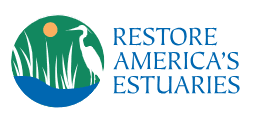
Training
The Long Island Sound Community Impact Fund (LISCIF) is a partnership between Restore America’s Estuaries, the U.S. Environmental Protection Agency, and the Long Island Sound Study (LISS). The purpose of LISCIF is to build capacity for organizations located in communities affected by disproportionate environmental and human health risks. The purpose of the LISCIF is to provide technical and financial assistance to communities and improve the quality and accessibility of the Long Island Sound. The Long Island Sound Community Impact Fund seeks to increase organizational capacity through training that supports day-to-day operations, project implementation, and future funding opportunities.

Case Study
Plan
East Haddam, CT
With support from the Nature Conservancy and Sustainable CT, East Haddam organized a Community Resilience Building process and workshop, the results of which were compiled into this summary. The team engaged with community members to determine the present hazards and vulnerabilities and identify resilient solutions.
Case Study
Plan
East Haddam, CT
With support from the Nature Conservancy and Sustainable CT, East Haddam organized a Community Resilience Building process and workshop, the results of which were compiled into this summary. The team engaged with community members to determine the present hazards and vulnerabilities and identify resilient solutions.
Resources & Tools